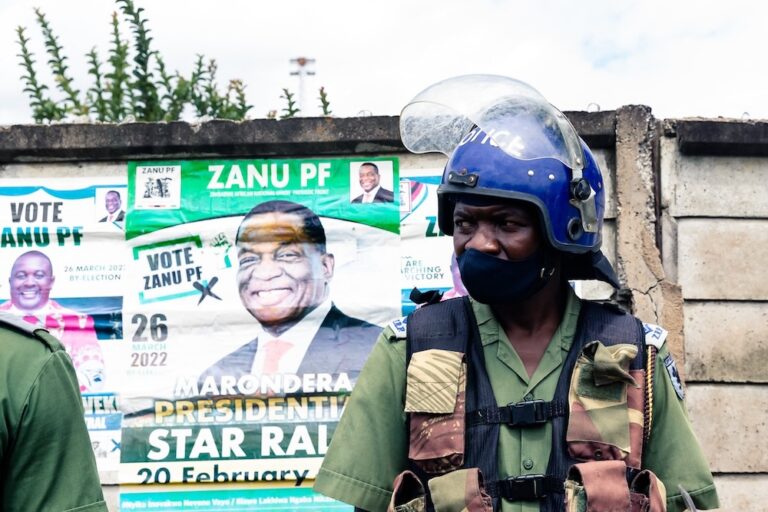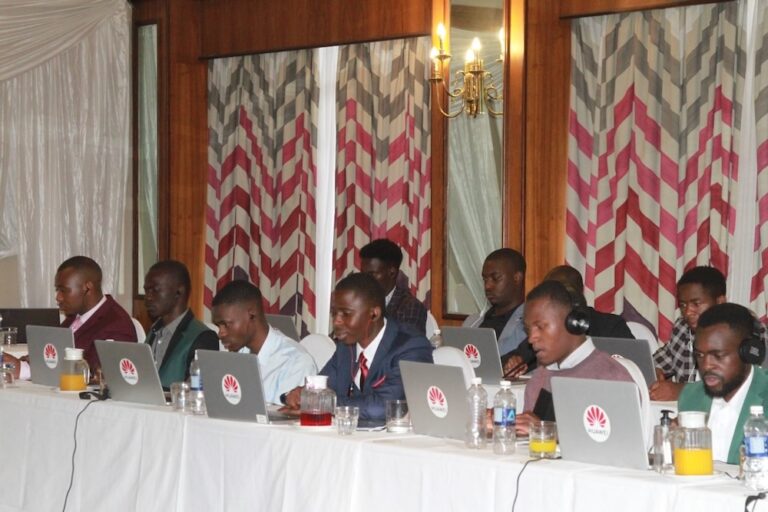(MISA/IFEX) – The government of Zimbabwe has postponed the enactment of broadcasting legislation which was meant to pave the way for the opening up of the airwaves in that country. Speaking at a 6 July 1999 workshop on “Media Freedom, Responsibility and Ethics” organised by the British Council, Permanent Secretary of Information Willard Chiwewe said […]
(MISA/IFEX) – The government of Zimbabwe has postponed the enactment of
broadcasting legislation which was meant to pave the way for the opening up
of the
airwaves in that country. Speaking at a 6 July 1999 workshop on “Media
Freedom, Responsibility and Ethics” organised by the British Council,
Permanent Secretary of Information Willard Chiwewe said that the present
Broadcasting, Postal and Telecommunications Bill was being re-written to
include only telecommunications.
Commenting on the subject, he said, “I can openly tell you here that the
current media reforms do not include the freeing of the airwaves.”
In a follow-up telephone interview with MISA-Zimbabwe, the permanent
secretary said that the government had decided to regulate broadcasting and
telecommunications separately and that broadcasting would be looked into at
a later date. He could not be drawn into giving more details on exactly when
the Broadcasting Bill would be gazetted. The Bill, which had been sent back
to the Attorney-General for re-writing, aimed to open up the broadcasting
and telecommunications sectors. It intended to repeal Section 27 of the
existing Broadcasting Act, which gives the Zimbabwe Broadcasting Corporation
(ZBC) a monopoly over broadcasting in Zimbabwe.
MISA-Zimbabwe said it viewed the action by the government as a retrogressive
step. The chapter said that although the Broadcasting, Postal and
Telecommunications Bill was not entirely satisfactory, it was a step in the
right direction. The chapter added that with the approach of the millennium
and elections scheduled for next year, it was very worrying that radio, a
medium used by the majority of Zimbabweans, was still in the hands of
government.
The head of MISA’s regional broadcasting programme, John Barker, said in
reaction that while it was disappointing that the Zimbabwean government
seemed reluctant to end the ZBC monopoly over broadcasting in that country,
there was now an opportunity for greater civil society involvement in the
debate on the future of broadcasting in Zimbabwe. Barker added that he hoped
the government would consult widely with civil society on the issue,
particularly considering that a number of groups, including MISA-Zimbabwe,
had already put forward alternative proposals for broadcasting in Zimbabwe.


